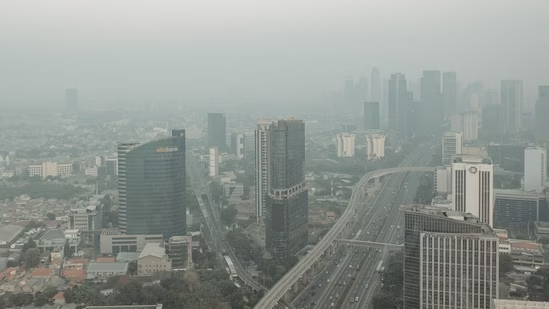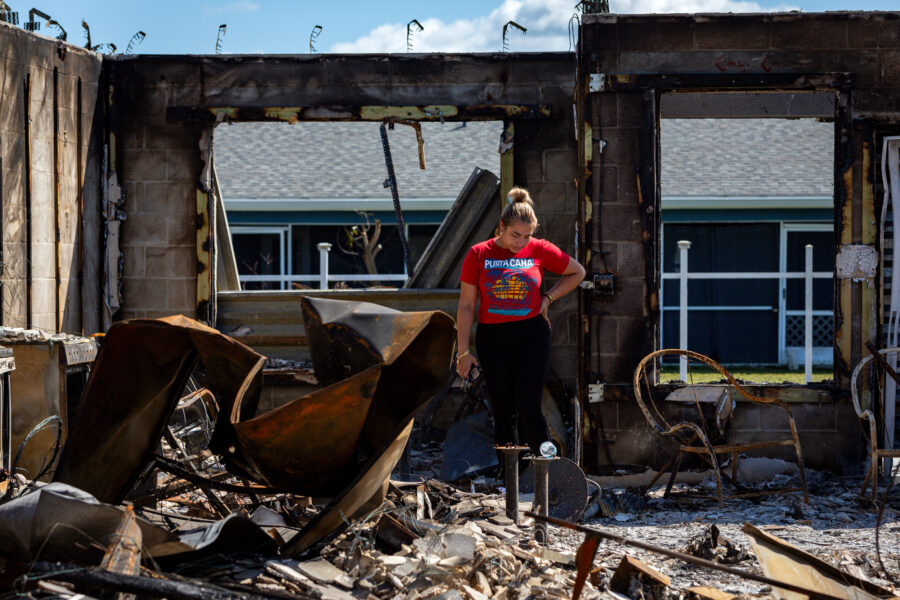No country meets WHO air quality standard, life span cut by 2.3 years globally, report finds
On Tuesday, the recently released annual Air Quality Life Index report, it was disclosed that air pollution stands as the "most significant external menace to human life expectancy," causing a reduction of the average worldwide lifespan by 2.3 years.

The Energy Policy Institute at the University of Chicago released a report that compared the effects of breathing polluted air to other health risks like smoking, drinking alcohol, unsafe water, and car accidents. According to the report, air pollution is more damaging than all of them. In fact, it causes over three times the harm of alcohol use or unsafe water and more than five times that of car crash injuries.
The report indicated that not a single nation across the globe achieved the air quality benchmark set by the World Health Organization, which stands at 5 micrograms of pollutants per cubic meter of air (μg/m³) in the year 2021.
ALSO READ| Who is Tailei Qi? What we know about the accused in University of North Carolina- Chapel Hill shooting incident
The US standard is 12 μg/m³, but the Environmental Protection Agency has proposed to lower it to 9 to 10 μg/m³. If this goal is achieved, the Energy Policy Institute estimated that Americans could gain a total of 3.2 million years of life.
‘threat to public health than HIV/AIDS’
But, most of the life expectancy loss due to air pollution occurs in Africa and Asia, which account for more than 92% of the global burden.
In these regions, air pollution poses a greater threat to public health than HIV/AIDS and malaria combined. However, they lack the necessary infrastructure to monitor and improve air quality.
“Three-quarters of air pollution’s impact on global life expectancy occurs in just six countries, Bangladesh, India, Pakistan, China, Nigeria and Indonesia, where people lose one to more than six years off their lives because of the air they breathe,” said Michael Greenstone, Air Quality Life Index creator and Milton Friedman Distinguished Service Professor in Economics.

For instance, Bangladesh has the worst air pollution in the world, and its people lose an average of 6.8 years of life. Whereas Americans only lose an average of 3.6 months.
The researchers urged more funding and collaboration to “build the infrastructure that is missing today,” especially for timely, reliable, open-air quality data.
“war against pollution”
Christa Hasenkopf, director of the Energy Policy Institute air quality programs and AQLI, said that such data can be “the backbone of civil society and government clean air efforts - providing the information that people and governments lack and that allows for more informed policy decisions.”
The report also highlighted some success stories, such as China, which has reduced its air pollution by over 42% in the past decade after declaring a “war against pollution.” As a result, Chinese people have gained an average of 2.2 years of life, even though their fine particulate matter levels are still six times higher than recommended.

Last year, the World Health Organization approximated that 99% of the global population was inhaling air that potentially carried toxic elements.
ALSO READ| Legal proceedings commence as three Donald Trump associates plead not guilty in Georgia election allegations
“After surviving a pandemic, it is unacceptable to still have 7 million preventable deaths and countless preventable lost years of good health due to air pollution,” said Dr. María Neira, the director of the WHO’s Department of Public Health and Environment.
“Yet too many investments are still being sunk into a polluted environment rather than in clean, healthy air.”
Disclaimer: The copyright of this article belongs to the original author. Reposting this article is solely for the purpose of information dissemination and does not constitute any investment advice. If there is any infringement, please contact us immediately. We will make corrections or deletions as necessary. Thank you.
Title:No country meets WHO air quality standard, life span cut by 2.3 years globally, report finds
Url:https://www.investsfocus.com









